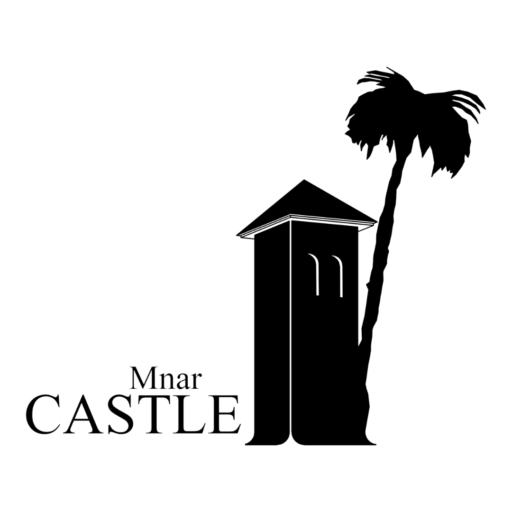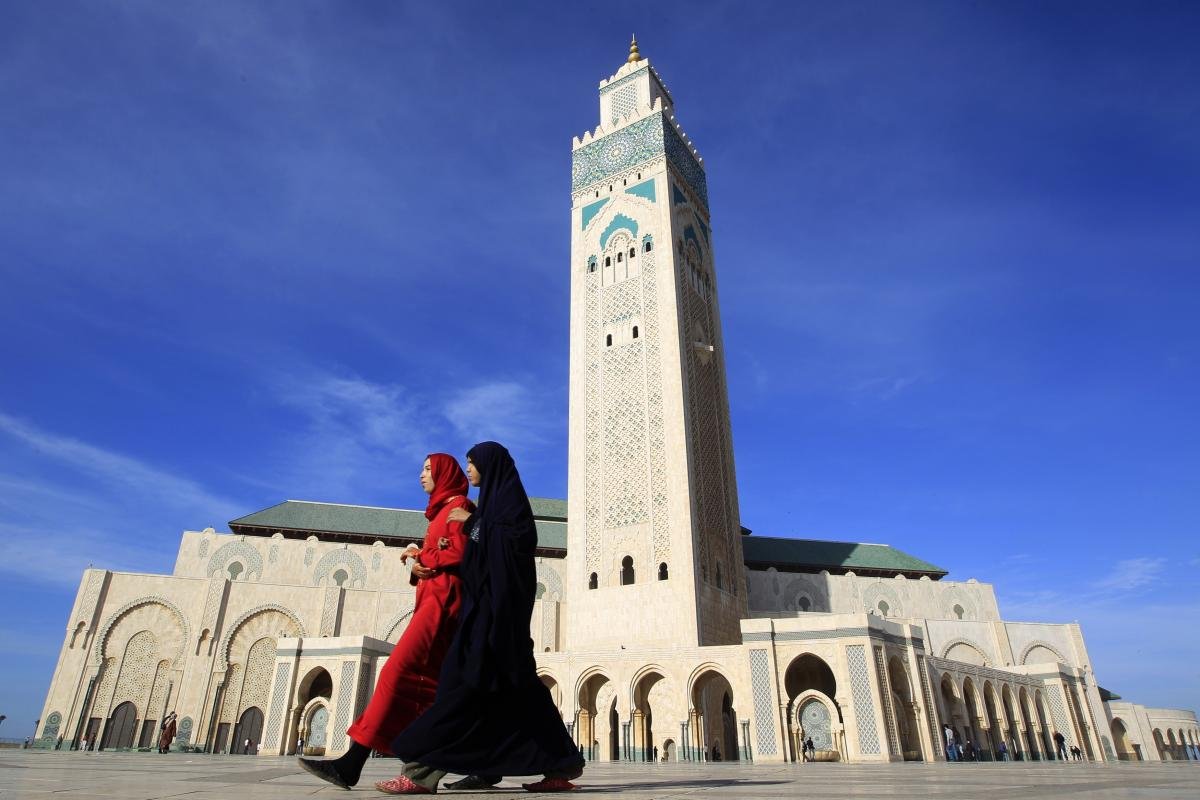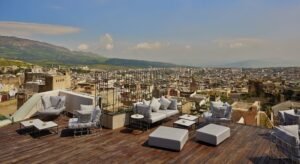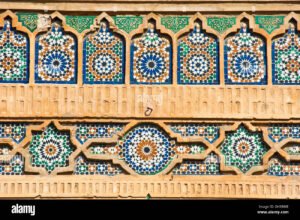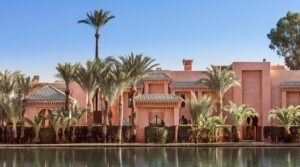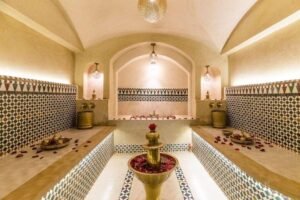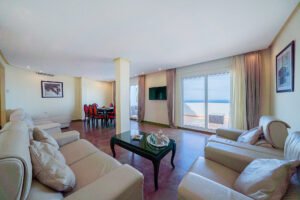Is Morocco a Muslim Country? A Cultural Guide for Tourists
A Land of Faith, History, and Hospitality
Is Morocco a Muslim country? The simple answer is yes. Islam is the official religion, shaping the country's traditions, laws, and way of life. However, Morocco is also a land of cultural diversity, where centuries of history have blended Islamic customs with Berber heritage, Andalusian influences, and European connections. For travelers, this means experiencing a nation where faith is woven into daily life, from the rhythmic call to prayer echoing through the medinas to the warm hospitality that defines Moroccan culture. While Islam plays a central role, Morocco is also known for its openness and tolerance, making it a welcoming destination for visitors of all backgrounds. Understanding Morocco’s Islamic identity enhances the travel experience. Whether exploring ancient mosques, joining locals for mint tea, or visiting during Ramadan, knowing what to expect ensures a more immersive and respectful journey. This guide will help travelers navigate Morocco’s cultural landscape, covering religious customs, social etiquette, and practical tips for an unforgettable visit. Have questions? Contact us now on WhatsApp, and our team will be happy to assist you!1. Morocco’s Islamic Identity: A Nation Rooted in Faith
Morocco is a Muslim-majority country, with approximately 99% of its population adhering to Islam. The dominant sect is Sunni Islam, following the Maliki school of jurisprudence, which is known for its moderate and pragmatic approach to religious teachings. Islam has been a defining part of Morocco’s identity for over a thousand years. It was introduced in the 7th century and became deeply intertwined with the ruling dynasties, shaping governance, architecture, and cultural norms. Today, the King of Morocco holds the title of "Commander of the Faithful", reinforcing the country's Islamic heritage while promoting religious tolerance. While Islam is central to Moroccan life, the country differs from stricter Islamic nations. Women have more freedoms compared to conservative Gulf states, alcohol is available in licensed establishments, and Morocco embraces tourism with an open-minded approach.2. Religion in Everyday Life: What Visitors Will Notice
Travelers will see and hear elements of Islam throughout Morocco, but daily life remains accessible and welcoming to non-Muslims. Key aspects include:The Call to Prayer (Adhan)
Five times a day, the adhan rings out from mosques, marking the time for prayer. While many Moroccans pause their activities to pray, tourists are not expected to do so. Shops and restaurants continue operating, though in smaller towns, you may notice temporary closures.Fridays as a Special Day
Friday is the holiest day of the week in Islam. Many businesses close for a few hours around midday to allow people to attend Jumu’ah (Friday prayers). Tourist sites and restaurants generally remain open, but it's helpful to plan accordingly.Ramadan: A Unique Cultural Experience
During Ramadan, Muslims fast from sunrise to sunset. While non-Muslims are not expected to fast, it is respectful to avoid eating, drinking, or smoking in public during daylight hours. After sunset, the atmosphere transforms as locals gather for iftar (breaking the fast), filling the streets with the scent of harira soup, dates, and fresh bread. Tourists are welcomed into the celebrations, and many hotels offer special Ramadan experiences.Modest Dress Guidelines
While Morocco does not enforce strict dress codes, dressing modestly is appreciated, especially in rural areas and religious sites. Women may feel more comfortable wearing loose-fitting clothing that covers the shoulders and knees, while men should avoid sleeveless shirts in conservative settings. In tourist hubs like Marrakech and Casablanca, fashion is more relaxed, with both traditional and modern styles coexisting.3. Alcohol, Social Norms, and Tourist Etiquette
While Morocco is an Islamic country, it is also known for its relaxed social customs compared to some Muslim-majority nations. However, certain cultural norms should be respected.Alcohol Availability and Regulations
- Alcohol is legal but regulated. It is available in licensed hotels, bars, and upscale restaurants.
- Public intoxication is frowned upon, and drinking in open spaces is generally not allowed.
- Some regions, especially religiously conservative towns, have fewer alcohol-serving establishments.
Respecting Religious Sites
- Non-Muslims cannot enter most mosques in Morocco. However, the Hassan II Mosque in Casablanca is an exception, offering guided tours showcasing its stunning architecture.
- When visiting religious or historical sites, dressing modestly and speaking in a respectful tone is encouraged.
Public Behavior and Social Etiquette
- Public displays of affection should be kept minimal. Holding hands is fine, but kissing or hugging in public may be considered inappropriate.
- Photography should be done respectfully, especially when capturing images of locals. Always ask before taking pictures, particularly in rural areas.
4. Is Morocco a Muslim Country? The Role of Islam in Moroccan Hospitality
Moroccan hospitality is deeply tied to Islamic values of generosity and kindness. Travelers will often be greeted with warmth, invited to share meals, or offered a glass of Moroccan mint tea, a symbol of friendship.Tea Culture: A Ritual of Welcome
- Accepting an offer of tea is a sign of respect and hospitality.
- Moroccan mint tea, made with green tea, fresh mint, and sugar, is served in small glasses and poured from a height.
Tipping and Gratitude
- Tipping is customary in Morocco, especially in restaurants, taxis, and for tour guides.
- Leaving 10-15% in restaurants and small change for porters or street performers is appreciated.
Souk Shopping and Bargaining
- Haggling is expected in Moroccan markets (souks). Sellers often start with high prices, and negotiation is part of the experience.
- Approach bargaining with humor and patience. Walking away can sometimes lead to a better deal.
5. Is Morocco a Muslim Country? Exploring Its Religious Diversity and Tolerance
While Morocco is predominantly Muslim, it has a long history of religious diversity. The country was once home to a thriving Jewish community, and remnants of Jewish heritage can be found in cities like Fez and Essaouira. Christianity is also present, particularly among expatriates. Morocco’s approach to religion is one of coexistence and respect. While Islam shapes the nation's identity, the country remains open to different faiths and cultural influences. This balance makes Morocco a fascinating destination for travelers seeking both tradition and modernity.Practical Travel Tips for Visiting Morocco
✔ Best Time to Visit: Spring (March-May) and Fall (September-November) for pleasant weather. ✔ Currency: Moroccan Dirham (MAD). Cash is preferred in markets, but credit cards are widely accepted in hotels and major restaurants. ✔ Language: Arabic and Berber are official languages. French is widely spoken, and many people in tourism speak English. ✔ Local Experiences to Try:- Explore the blue streets of Chefchaouen.
- Visit the lively Jemaa el-Fnaa square in Marrakech.
- Experience a traditional hammam (Moroccan spa).
- Take a camel trek in the Sahara Desert.

